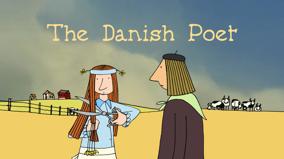Skip to content
Accessibility
Ideologies (46)
-
Available in English Options
-
 Canada at War, Part 8: New Directions1962 27 min
Canada at War, Part 8: New Directions1962 27 min -
 Canada at War, Part 1: Dusk1962 27 min
Canada at War, Part 1: Dusk1962 27 min -
 Canada at War, Part 10: Cinderella on the Left1962 27 min
Canada at War, Part 10: Cinderella on the Left1962 27 min






























